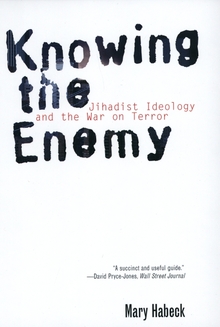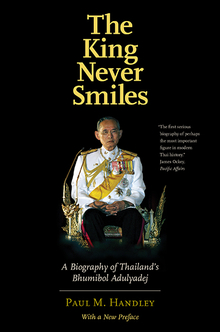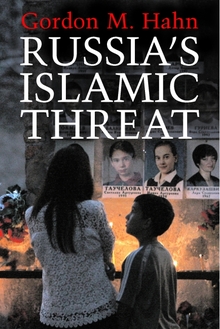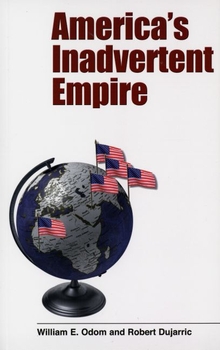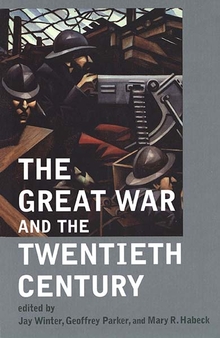Knowing the Enemy
WARNING
You are viewing an older version of the Yalebooks website. Please visit out new website with more updated information and a better user experience: https://www.yalebooks.com
Jihadist Ideology and the War on Terror
Mary Habeck
An examination of the real reasons for 9/11 that will provoke fundamental rethinking of the War on Terrorism
"A level-headed, intelligent, thorough and accessible survey of modern Islamic militant thinking."—Jason Burke, Guardian
“Concise and sober. . . . Quite simply the best single volume currently available on this topic.”—Tim Rutten, Los Angeles Times
After September 11, Americans agonized over why nineteen men hated the United States enough to kill three thousand civilians in an unprovoked assault. Analysts have offered a wide variety of explanations for the attack, but the one voice missing is that of the terrorists themselves. This penetrating book is the first to present the inner logic of al-Qa’ida and like-minded extremist groups by which they justify September 11 and other terrorist attacks.
Mary Habeck explains that these extremist groups belong to a new movement—known as jihadism—with a specific ideology based on the thought of Muhammad ibn Abd al-Wahhab, Hasan al-Banna, and Sayyid Qutb. Jihadist ideology contains new definitions of the unity of God and of jihad, which allow members to call for the destruction of democracy and the United States and to murder innocent men, women, and children. Habeck also suggests how the United States might defeat the jihadis, using their own ideology against them.
MARY HABECK is associate professor, School of Advanced International Studies, Johns Hopkins University. She is coeditor of Spain Betrayed: The Soviet Union in the Spanish Civil War and The Great War and the Twentieth Century, both published by Yale University Press.
"Habeck has put together so many pieces from so many sources together in such a manner that no writer on this topic can afford to ignore this book. Making the case for the primacy of these ideas, not merely as products of impersonal socio-economic structures and international systemic factors, is not a minor undertaking. Knowing the Enemy constitutes an admirable effort to coherently portray the world view of Jihadists and identify their differences as well."—Ibrahim Karawan, Director, Middle East Center, University of Utah
“Concise and sober. . . . Quite simply the best single volume currently available on this topic. . . . The real import of Habeck’s book is its suggestion that because the jihadis really believe what they say they do—and act on it—studying their texts and comments could yield the effective anti-terrorism that so far has eluded George W. Bush’s administration.”—Tim Rutten, Los Angeles Times
'...one of the best books among many so far on the subject... [It] ought to be necessary reading... Knowing the Enemy is vital in the struggle of ideas.' - Theo Hartman, Centre for Research on Geopolitics
"The book, which is admirably accessible also to the non-specialist, is particularly valuable in its careful distinction between Islam as such and those within Islam who have no doubt that they are at war with the rest of the world, including most of the Islamic world (which they view as the psuedo-Islamic world). . . . A particular merit of Habeck's book is that she takes with utmost seriousness the centrality of religion in the jihadist view of the world. . . It is the great merit of Habeck's book that she compels us to listen to them rather than to ourselves. . . . Mary Habeck's great service is to help us understand what these jihadis believe, and that what they believe is firmly rooted in Islamic tradition, although it is not the only understanding of that tradition."—Richard John Neuhaus, First Things
'...a level-headed, intelligent, thorough and accessible survey of modern Islamic militant thinking.' - Jason Burke, Guardian
"[An] important and necessary new book. . . . It demonstrates an insight and forthrightness rare among Western pundits."—Adam Kirsch, New York Sun
"A succinct and useful guide."—David Pryce-Jones, Wall Street Journal
“The book undertakes to tell the reader things about the jihadist offensive that we should know about, properly concern ourselves with, and take into account when weighing legislative initiatives.”—William F. Buckley Jr., Houston Chronicle
“In her short, sharp book, [Habeck] analyzes [Muslims] intellectual and spiritual roots which reach back at least to the 12th century. . . . Habeck leads her readers through the thinking of such 20th-century theorists as Hassan al-Banna, the Egyptian who founded the Muslim Brotherhood, and Sayyid Abul A’la Mawdudi, the Pakistani who founded his country’s jihadist party. The major figures in the story agree that Islam is both the true religion and the only religion that should be permitted.”—Robert Fulford, National Post
Publication Date: March 14, 2007

